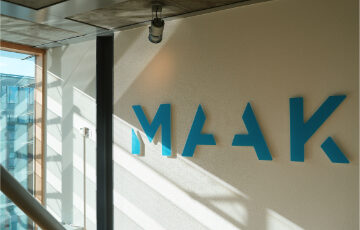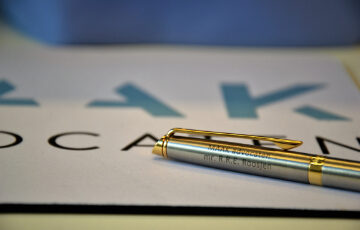A license contract under Dutch law is an agreement whereby one party (the licensor) grants another party (the licensee) a specific right to use a property right. This is often an intellectual property right, for example a patent, a trademark or a domain name. In this blog, our Dutch contract lawyer for license agreements informs you about the characteristics of a licence agreement and how such an agreement is concluded under Dutch law. MAAK’s Dutch lawyers in the Netherlands use their experience to provide you with the best possible support for your strategic and commercial questions.
License agreement in the Netherlands
A Licence agreement in the Netherlands can take many forms. For example, a licence contract under Dutch law can be exclusive or non-exclusive, concluded for a certain period of time or indefinitely, or it can concern an existing or pending patent. In the case of exclusivity, for example, the licensor agrees not to grant any further licence during the term of the agreement. In the Netherlands there are no specific laws regulating licence agreements. This means that licence agreements under Dutch law are subject to the general provisions of Dutch contract law. However, it should be noted that licence agreements also often touch upon other areas of law such as intellectual property law and national/European competition law. As with the interpretation of all contracts, the Dutch principle of good faith must be observed when concluding a licence agreement. These principles are important in light of the fact that the court can set aside or invalidate contractual clauses if, in the judge’s opinion, they violate the principles of reasonableness, fairness and of good faith.
FORM OF LICENCE AGREEMENTS IN THE NETHERLANDS
There are no formal requirements for licence agreements in the Netherlands. This means that a licence agreement – like any other contract – can be concluded orally or in writing through the exchange of documents. However, in the case of intellectual property licences, it should be noted that they can often only be enforced against third parties if they have been registered beforehand. Before entering into a licence agreement under Dutch law, it is advisable to engage a lawyer in Holland to ensure that the drafting and execution of the agreement comply with the requirements of Dutch law. Our lawyers in the Netherlands are specialised in contract law and will be happy to assist you in concluding your contract.
SPECIAL FEATURES WHEN CONCLUDING A LICENCE AGREEMENT
When concluding a licence agreement, it is important to consider the temporal and local scope of the licence agreement and to define it precisely in the contract. As already mentioned, a licence agreement may be limited in time or unlimited in duration. It may therefore be advisable to provide a period of notice. The local scope of the licence agreement should also be clearly and unambiguously defined in the agreement.
PROPERTY RIGHTS under DUTCH CONTRACT LAW
It is important to secure any property rights, but it is also possible that the registration of the property right in question may be declared invalid or expire. Accordingly, it is important to consider this risk before concluding the contract and, if necessary, to consult a specialist lawyer. If the licence agreement does not contain a clause regulating this matter, the licence agreement will expire simultaneously with the expiry or invalidity of the registration (insofar as the licence agreement concerns this right).
The licence agreement may also contain clauses restricting or prohibiting assignment or sub-licensing by the licensee. Such clauses provide certainty as to who has rights to the intellectual or other rights in question and accordingly provide legal certainty.
Licence agreements also often contain clauses protecting against the disclosure of know-how, goodwill or confidentiality clauses. A breach of these obligations may also give rise to a claim under Dutch tort law or competition law and should therefore definitely be included in the contract.
Given the often long-term nature of licence agreements, provisions allowing termination under certain conditions may also be advisable. Such clauses may, for example, provide that the agreement may be terminated if the licensee becomes insolvent or if the registration of an IP right expires or is declared invalid. In addition, an arbitration or alternative dispute resolution clause should be included in a licence agreement. A contract law lawyer in Holland can advise you on the possible advantages or disadvantages of different methods of dispute resolution for the contract in question.
Dutch lawyer specialized in license contracts
Our team of Dutch contract lawyers in the Netherlands (Amsterdam) have a strong reputation in license contracts under Dutch law. Would you like to obtain advice on initiating a procedure, or would you like to know more about the best clause in your license contract under Dutch law? Please contact Remko Roosjen, Dutch lawyer specialized in license contracts, or one of our other Dutch lawyers in Amsterdam.







